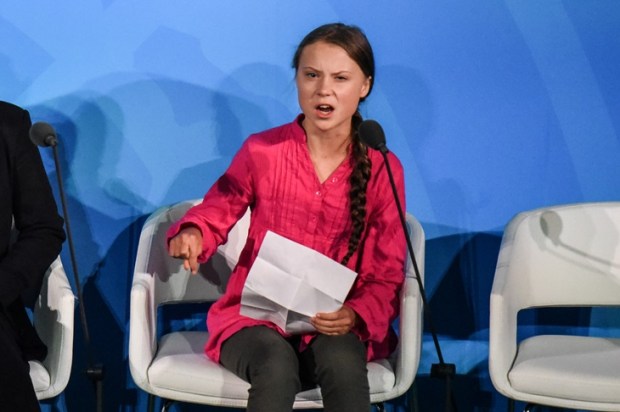In news that would surprise only the most casual of observers, the inestimably appealable Judge Mordecai Bromberg has once more been served a plate of just desserts befitting an activist member of the judiciary. Judge Bromberg, as has become commonplace, finds himself against his namesake and more akin to Mordecai’s antagonist Haman – in so far as adherence to the law in judicial decisions goes anyway.
The full bench of the Federal Court, in a decision so scathing the heat emanating from it should be of concern to global warming activists, has struck down the ‘duty of care to young Australians under the age of 18’ as being ‘incoherent and inconsistent’ under the Environmental Protection and Biodiversity Conservation Act 1999.
Beach, Wheelahan JJ, and Allsop CJ varyingly rebuked the ill-fated duty for lacking sufficient closeness or directness between the Environment Minister, Susan Ley’s, exercise of delegated authority and the likely risk of harm to the respondents and the class they represent. Putting it bluntly, the duty would have led to indeterminate liability among other critical issues.
As Chief Justice Allsop wrote, ‘The salient features enumerated in Stavar are the frame of reference through which existing relationships, situated within their broader social and legal context, are to be examined.’ Bromberg, ‘examined the salient features as individual considerations containing elements of the construction of the duty, leaving to the end of the analysis, almost as a miscellaneous consideration, fundamental considerations of the nature of the issues raised if the duty with its identified scope and content were imposed.’
This strikes a damning blow to the cohort of young activists who sought to, with a judicial activist flourish, gimp the ability of the Environment Minister to approve new mines or other projects around the country. Tying up any new proposals in a novel duty of care litigation-fuelled game of attrition.
The likes of Holmes à Court and Climate 200, no doubt waiting in the wings to fund these future class actions, have been dealt a rightful setback and, for now at least, the Australian public avoids the wide-open floodgate of novel and vague litigation Europe is coming to terms with following the decision of the Hague Court of Appeal in the Urgenda case.
One wonders how the gleeful hand-wringers, even many in the legal profession, who declared the decision at first instance by Bromberg as a ‘historic moment’ will react in light of the decision being overturned.
Twitter is already alive with poorly-conceived analysis, suggesting the courts have failed to hold political leaders to account for political decisions. So close, they come, to admitting that they do no trust voters to be imbibed with the ability to vote for politicians on their policy. How much better it would be if it was just left to the climate activists to create novel duties in court.
Of course, the final outcome of this case would be subject to any leave to appeal to the High Court. I can’t imagine Anjali Sharma – the first plaintiff in the proceedings against the Environment Minister – and her merry band will have any shortage of suitors with deep pockets willing to fund it if the High Court are willing to hear it.
As Janet Albrechtsen so delightfully put it in The Australian last year: ‘Bromberg is prone to being overturned by our High Court to an extent that might be disconcerting to a judge of a less sanguine temperament. Since 2015, the High Court has tossed out five Federal Court decisions on industrial matters, all featuring Bromberg.’
It’s not just Janet who has been alive to the questionable track record of Bromberg. The Menzies Research Centre (MRC) made a submission to a public inquiry into judicial bias which was rejected by the Australian Law Reform Commission due to dubious allegations of defamatory material, ignoring the clear public interest in the decisions and actions of our federal judiciary.
The MRC analysis identified Bromberg as an outlier, at the time of the submission, writing, ‘in the 11 cases heard by Justice Bromberg involving a union, he has found in favour of the union 10 times or 91 per cent of the time, 43 percentage points above the average.’
Not content with failing to reshape employment law in favour of unions, Bromberg has now had a tilt at plying his trade to the also-topical issue of climate change, in favour of Sharma and co. Once more coming up with the short straw.
For now, at least, the door is closed to these activist litigators and the Environment Minister, and companies with projects in the approval pipeline, can return to a situation of certainty regarding the framework that applies to the process.
This is a win for a nation blessed with an abundance of natural resources which is reliant on extractive industry to fuel our economy. If these activists wish to change the framework at a legislative level, they are welcome to put that before the public at the next federal election (and Climate 200 seeks to do exactly that). They do so at their own peril, and it remains to be seen if the public writ large will be sufficiently receptive.
For her two cents, Anjali Sharma has declared the decision of the full bench leaves ‘us devastated, but it will not deter us in our fight for climate justice’. Perhaps some choice appointments by an Albanese government might be what they need to tilt the judiciary in their favour – Bromberg for the High Court, anyone?
Got something to add? Join the discussion and comment below.
Get 10 issues for just $10
Subscribe to The Spectator Australia today for the next 10 magazine issues, plus full online access, for just $10.

























Comments
Don't miss out
Join the conversation with other Spectator Australia readers. Subscribe to leave a comment.
SUBSCRIBEAlready a subscriber? Log in